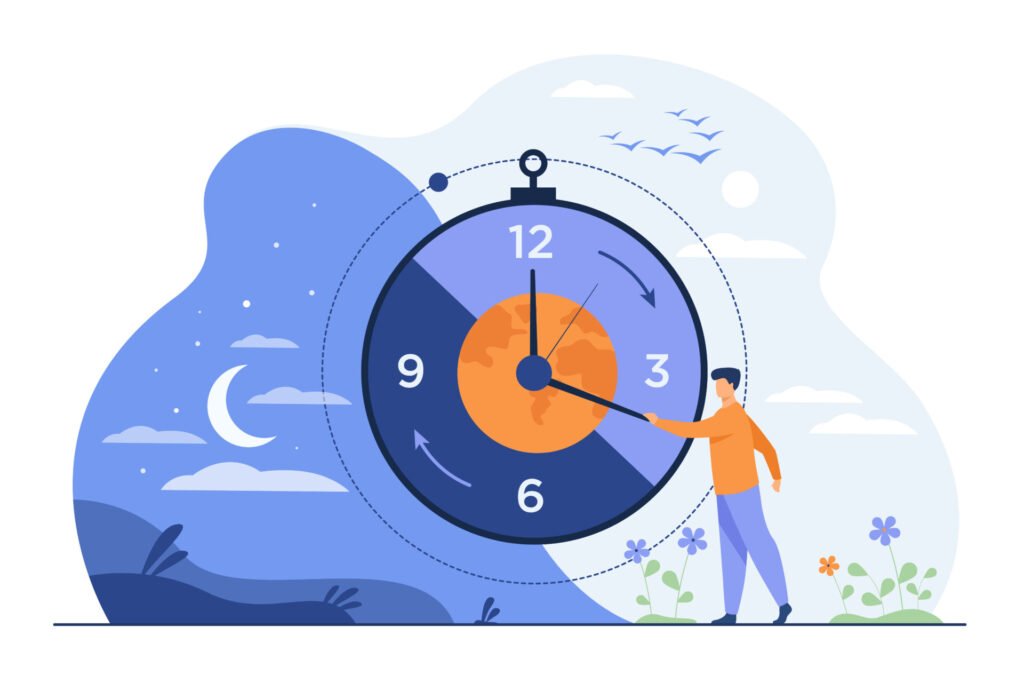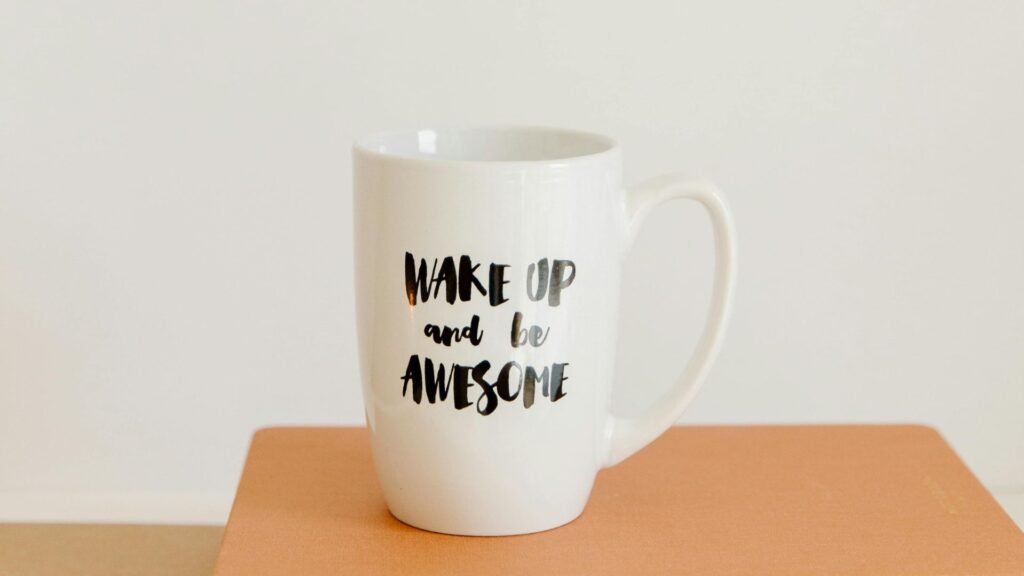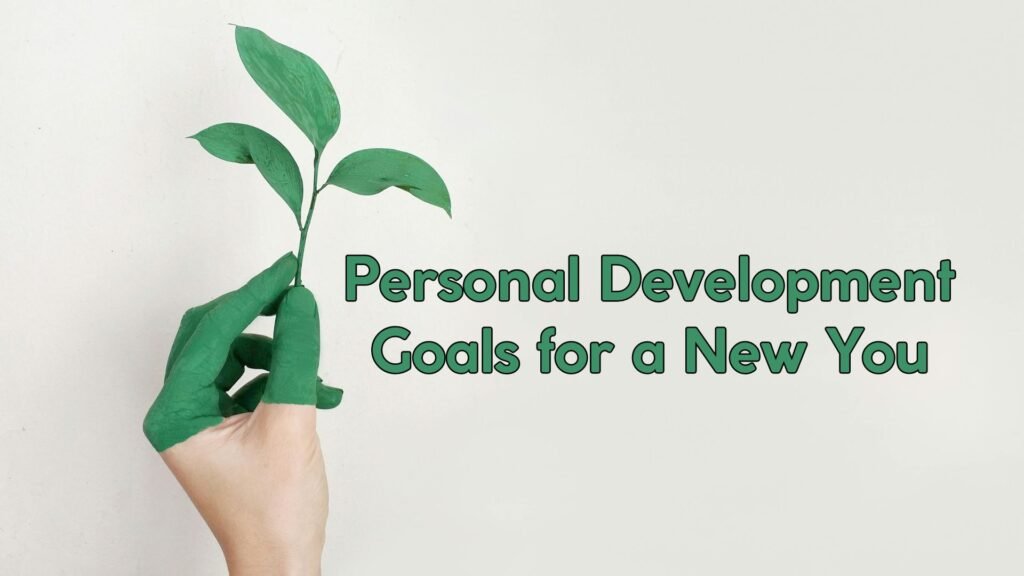Do you ever find yourself struggling to leave your warm bed in the morning, feeling groggy and unprepared for the day ahead? If so, you’re not alone. The time you wake up can significantly impact your mood, energy levels, and overall productivity throughout the day.
Many of us wonder, “When is the best time for me to wake up?” It’s a common question with no one-size-fits-all answer. While some people thrive on early mornings, others prefer to sleep in and stay up later. Finding the right wake-up time is about more than just setting your alarm; it’s about aligning with your body’s natural rhythm and daily routine.
But how do you determine the ideal wake-up time for yourself? Understanding your body’s sleep needs and patterns is key to finding the answer. By uncovering this information, you can set a wake-up time that leaves you feeling refreshed and ready to tackle the day ahead.
In this article, we’ll explore how to pinpoint your optimal wake-up time. We’ll break down the process into simple steps, making it easy to understand and apply to your own routine. By the end, you’ll have the knowledge and tools to set a wake-up time that maximizes your energy and productivity.
So, what’s the best morning start time?
There is no perfect morning start time for everyone. It all depends on your own circadian rhythm and personal preferences. Research from the National Institutes of Health (NIH) shows that people have different chronotypes, meaning some are early birds and some are night owls. Understanding your chronotype can greatly affect your health and productivity.
Understand the Circadian Rhythms
Your body has its own built-in clock called the circadian rhythm. It controls when you feel awake, tired, hungry, and alert. Knowing your circadian rhythm helps you understand when to wake up and sleep, and how it affects your whole day.
How does the circadian rhythm work?

Your circadian rhythm is like a built-in timer that follows a 24-hour cycle. It’s influenced by external cues, with the most important one being sunlight. When morning sunlight hits your eyes, it sends signals to a tiny part of your brain called the suprachiasmatic nucleus (SCN). This part acts like your body’s master clock and starts the process of waking you up.
As the day progresses, your energy levels gradually rise. You feel more awake and alert. This is the time when your body is at its peak for activities and concentration.
In the evening, as the sun sets and the light dims, your SCN gets the message that it’s time to wind down. It triggers the production of melatonin, the hormone that makes you feel drowsy. Melatonin prepares your body for a good night’s sleep.
How Your Wake-Up Time Affects Your Day
Your wake-up time isn’t just about starting your day—it sets the tone for your entire day. It affects how you feel, your energy levels, and even how you interact with others.
For instance, if you’re an early riser, you might wake up feeling cheerful and ready to take on the day. Your body’s internal clock is already signaling for alertness, so you’re likely to feel energetic and focused. It’s like giving yourself a head start on productivity!
But if you wake up when your body is still in a state of drowsiness, it might take longer to shake off that morning grogginess. You might struggle to concentrate and feel less productive during those early hours.
So, choosing the right wake-up time can make a big difference in how you feel and perform throughout the day.
So How to coordinate with your internal body clock?
To work with your circadian rhythm, try to spend some time outdoors in the morning sun. A short walk or having breakfast by a sunny window can help. This exposure tells your body it’s time to wake up and be active.
As evening approaches, your body starts making melatonin, a hormone that makes you feel sleepy. Choosing the right bedtime is important because it can help your body make enough melatonin for a good night’s sleep.
In the evening, it’s a good idea to reduce bright lights and avoid screens, like phones and TVs. Dimming the lights in your home sends a signal to your body that it’s time to relax. You can create a calm atmosphere by using soft, warm lighting in your living spaces. This helps your body transition smoothly into a peaceful night’s sleep.
What time do successful people wake up?
Successful people wake up at different times. Some like to rise early, even before the sun comes up, while others prefer a later start. There’s no one “right” time.
For instance, Tim Cook, the former CEO of Apple, gets up very early, around 3:45 AM. He kicks off his day before most people are even awake. Meanwhile, Bill Gates, the co-founder of Microsoft, rises at 7:00 AM, a more typical time.
Then there are those who stay up late and wake up later. Haruki Murakami, a renowned author, often writes late into the night and wakes up late in the morning.
But what matters most is how they utilize their mornings. Successful individuals often use this time for important tasks like work, exercise, or planning. It’s not about the exact time they wake up but how effectively they use their mornings to pursue their goals.
The American Psychological Association (APA) found that flexible work hours improve job satisfaction and reduce stress. Companies that let employees choose their start times based on their natural rhythms see higher productivity and happier workers. This shows that fitting your wake-up time to your own needs is better than following a one-size-fits-all schedule.
Early Bird vs. Night Owl
Some people naturally wake up early in the morning, feeling most energized at the start of the day. Others are night owls, finding their peak energy and creativity during the late hours.
Each person has an internal clock that dictates when they feel most awake and alert during the day. This internal clock is known as your “chronotype.”
According to a research:
| Approximately 40% of people identify as early birds, while 30% lean towards being night owls, with the remaining 30% falling somewhere in between. |
The Early Bird Advantage
Early birds are the people who love waking up early, often before everyone else. They enjoy the peacefulness of early mornings when the world is still and quiet. They tend to report higher job satisfaction and better mental health. The stillness of dawn offers a unique opportunity for focused work and mindful reflection.
Early birds are statistically more likely to have consistent sleep patterns, which can contribute to better overall health.
The Night Owl’s Realm
Night owls are those who feel most awake and creative late at night. They find inspiration when the rest of the world is asleep. Nighttime feels like their domain, where they can focus on artistic projects, solve problems, or simply enjoy the solitude.
Research shows that night owls often have higher cognitive abilities and perform better in tasks requiring abstract thinking.
Embrace Your Chronotype
While embracing your natural chronotype is ideal, the reality is that the demands of modern life don’t always align with our inner clocks. Work, school, and social commitments often dictate specific wake-up and sleep times.
Adapting to your chronotype means finding a balance between your natural tendencies and the external expectations of your daily life. It involves making adjustments to ensure you get enough quality sleep while fulfilling your responsibilities.
The Power of Routine
Regardless of whether you’re an early bird or a night owl, establishing a consistent daily routine is essential. The Sleep Foundation says that getting up at the same time every day, even on weekends, helps regulate your internal clock and improves sleep quality. So, the best wake-up time is the one that fits your body’s natural rhythm.
When you have a regular schedule, your body becomes accustomed to when it should be awake and when it should rest, leading to improved sleep quality and overall well-being.
Research shows that individuals with a consistent sleep routine are less likely to experience sleep disturbances and sleep-related disorders. By listening to your body and finding your best wake-up time, you can improve your health, productivity, and happiness.
The Science Behind the Best Wake-Up Times
The best time to wake up is a deeply personal matter. It’s a blend of your individual preferences, lifestyle, and your body’s inner clock, known as your circadian rhythm.
The 5 AM Myth
Is waking up at 5 AM really the secret to success? It’s a question that has gained immense popularity in recent years. The idea that waking up at the crack of dawn leads to prosperity and productivity has become a sort of modern mantra. But is it true?
Debunking the Myth:
- The notion that a 5 AM wake-up time is universally ideal is indeed a myth. While some highly successful individuals do prefer early mornings, success isn’t solely determined by your wake-up time.
- Success is a highly individualized concept, and what works for one person may not work for another. The key is finding a routine that aligns with your unique needs and goals.
Think about successful people you admire. Some might be early birds, while others thrive during late hours. Success comes in various forms and schedules.
Sunrise and Wake-Up Time
The relationship between sunrise and the best time to wake up is a fascinating one. Natural light, especially the morning sun, has a profound impact on your mood and energy levels.
Morning Light and Mood:
- Exposure to natural light in the morning can boost your mood and help combat feelings of grogginess. It’s like a gentle nudge from nature to start your day.
- This exposure triggers the release of cortisol, which helps you feel more alert and ready to face the day.
Your ideal wake-up time may depend on when the sun rises in your location and how your body responds to natural light.
Pay attention to how you feel when you wake up at different times and experiment to find the wake-up time that suits you best.
Understand the Sleep Duration
For most adults, getting 7 to 9 hours of sleep is like recharging your body’s battery. But here’s the thing: everyone is unique. You might feel your best with a bit more or a bit less sleep. Pay attention to how much rest makes you feel sharp, energized, and ready to take on the world.
Chronotypes and Personal Preferences
Some people naturally find their peak performance at night. These night owls feel most active and creative when the stars are out. Others are early birds who shine in the morning.
It’s about knowing yourself and embracing your inner clock. If you love staying up late and it works for you, that’s perfectly okay. Embrace your unique chronotype and align your schedule accordingly.
Routine and Responsibilities
Your job, school, or daily responsibilities can guide your wake-up time. If your work demands an early start, it’s a sign to rise with the sun. However, if your schedule is more flexible, you have the liberty to choose a time that feels harmonious with your body’s rhythms.
Ideal Wake-Up Time

Finding your ideal wake-up time is like crafting a personalized schedule that suits your unique rhythm and lifestyle. It’s not just about setting an alarm; it’s about creating a routine that aligns with your body’s natural clock. Here’s a closer look at how to do it:
Set a Clear Awakening Goal:
Start by deciding exactly what time you want to wake up each morning. This choice might be influenced by your work hours, family obligations, or simply what feels right for you. If you have the flexibility to choose, pick a wake-up time that makes sense for your daily life.
Work Backwards for Bedtime:
Once you’ve established your wake-up time, calculate how many hours of sleep your body requires for optimal functioning. Typically, adults need between 7 to 9 hours of sleep, but it can vary. Deduct this sleep duration from your chosen wake-up time to pinpoint your ideal bedtime.
Stay Committed:
Consistency is your best friend when it comes to resetting your body’s internal clock. Make a commitment to wake up at the same time every single day, even on weekends. Avoid the temptation of hitting the snooze button, as it can disrupt your sleep cycle.
Track Your Sleep Journey:
Maintaining a sleep diary can provide valuable insights into your sleep patterns. Record not only your wake-up time but also how you feel during the day. Take note of when you naturally start feeling sleepy at night, as it can offer clues about your body’s sleep needs.
Fine-Tune Your Schedule:
As you continue with your chosen wake-up time and bedtime, your body will gradually adapt to this new routine. Over time, you may find that you wake up feeling refreshed and alert without needing an alarm.
Fast Fact: Did you know that waking up at the same time every day can actually help you sleep better? It’s true – your body loves a consistent schedule.
FAQs
Is there a universal best time to wake up in the morning?
No, the ideal wake-up time varies from person to person. It depends on your circadian rhythm and lifestyle.
Is 4am a good time to wake up?
Waking up at 4am can be good for some people, but it depends on your daily routine and how much sleep you need. If you like getting up very early and it fits your schedule, that’s fine. The most important thing is to wake up feeling rested and ready to start your day.
How can I determine my chronotype?
You can identify your chronotype by paying attention to when you naturally feel most awake and alert.







Pingback: 125 Refreshing Good Morning Quotes for a Positive Start | goalsempire.com